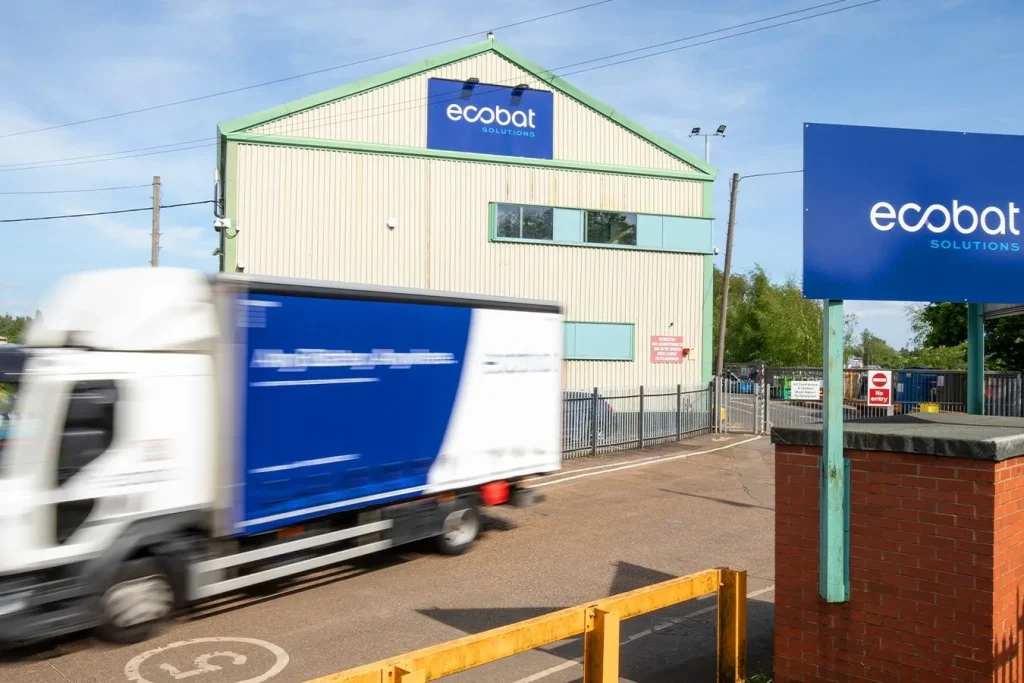Battery recycler Ecobat announced it now operates three fully commissioned lithium-ion battery recycling facilities across Germany, the United Kingdom, and the United States, enabling the company to process 10,000 tons of battery material annually. The company plans to more than double this capacity in the coming years.
According to Ecobat, all three plants were brought online within 12 months, underscoring what the firm calls a rapid scale-up in response to growing volumes of end-of-life electric vehicle (EV) batteries. “Ecobat’s rapid expansion in lithium-ion battery recycling demonstrates our commitment to meeting the growing demand for sustainable, closed-loop production processes,” said Brett Horton, Managing Director of Ecobat Solutions.
See also: Nissan and Ecobat Partner to Give Second Life to Nissan Leaf Batteries
The first facility to be commissioned was located in Hettstedt, Germany, at the end of 2023. Ecobat acquired the plant from lithium-ion recycling firm Promesa in 2021, and now describes it as “a cornerstone of Ecobat’s vision for a circular battery economy in Europe.”
The second plant came online in Casa Grande, Arizona, in April 2023. At launch, the US facility was projected to process 10,000 tonnes of lithium-ion batteries annually, representing a significant addition to Ecobat’s global footprint.
See also: Ecobat Expands Global Lithium-Ion Battery Recycling Footprint with New Facility in Arizona
The newest facility is located in Darlaston, England, and was commissioned in November 2024. The UK site plays a key role in Ecobat’s European strategy by recycling battery packs from older EV models such as the Volkswagen e-Golf and working with Nissan to repurpose batteries from Leaf vehicles. “Serving as a critical hub for Ecobat’s operations across the UK and the wider European market, Darlaston continues its legacy of supporting the circular economy,” the company said in a statement.
“With EV sales rising and more end-of-life batteries entering the market, our new facilities are well-positioned to meet these challenges,” Horton added. “We are creating value for our partners and stakeholders, while helping to drive the transition to a circular economy.”
